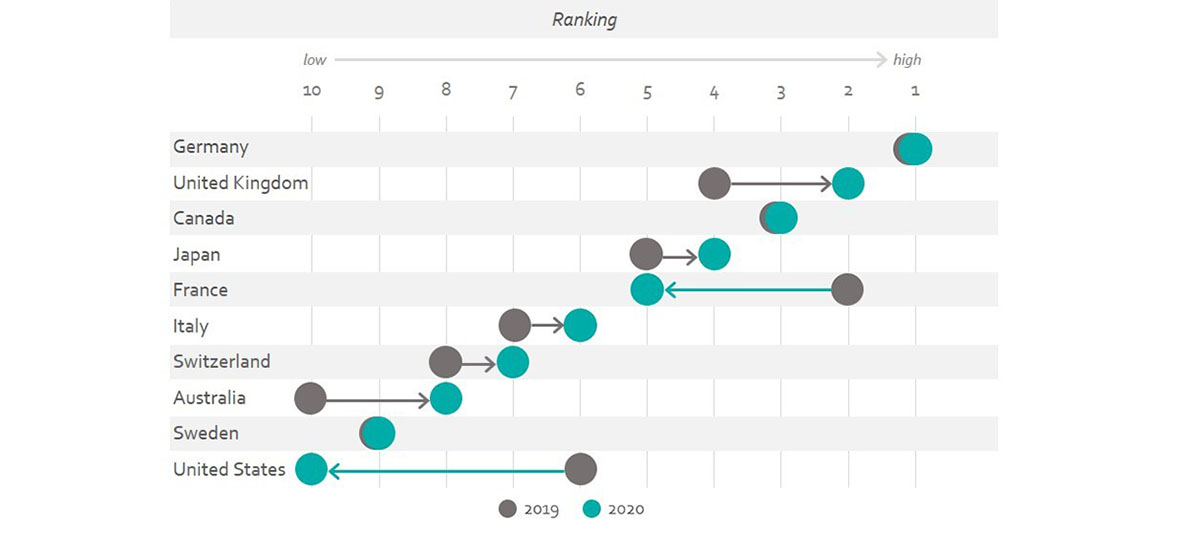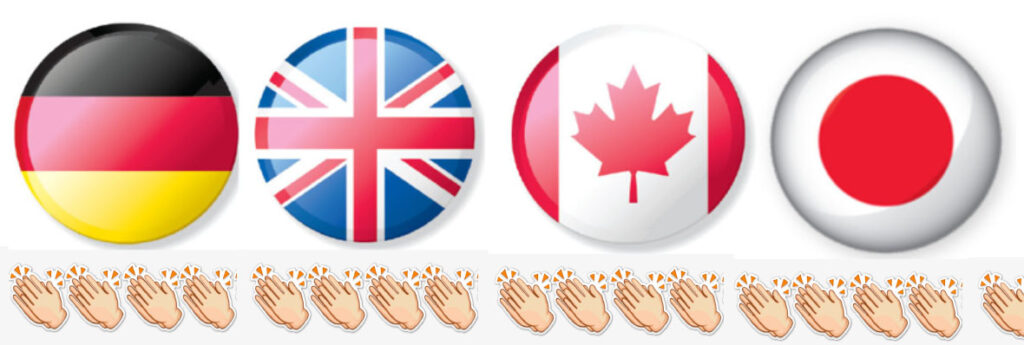Canada has scored top marks once again in a comprehensive study that evaluates the perceptions of consumers in 50 nations. Led by first-place rankings in the categories of people, governance, and immigration, the country placed third overall in this year’s Anholt-Ipsos Nation Brands Index (NBI) – retaining its lofty ranking from last year. Germany placed first for the fourth straight year.
“Canada’s leading performance on the ‘People’ dimension is driven by high ratings for each of the attributes measured within that category,” said Ipsos Sr. VP Jason McGrath, adding, “Canada ranks first for the welcoming nature of its people, and for the desire of having a close friend from Canada.
“The employability of Canadians is also highly ranked by global citizens, placing Canada at number two of all measured nations for this attribute,” he continued.
On immigration and investment, Canada performed well on all attributes that form this dimension, with McGrath noting, “In particular, Canada is the top-rated nation for being a place that global citizens would want to live and work for a substantial period of time, and Canada is the leading country that cares about equality in society.”
Conversely, Canada’s relative brand weaknesses are on the exports and tourism categories – particularly on the perception of contribution to science and technology and its historic buildings.
What really does make a difference is the impact a country is perceived to have on the rest of humanity and the planet, whether positive or negative, says Simon Anholt, who designed and launched the Nation Brands Index in 2005.
“And since a powerful and positive ‘brand image’ feeds directly into more tourism, more trade, more talent and more investment, such considerations should be right at the top of any government’s economic planning. The NBI is telling us yet again that if countries want to do well, they need to do good,” he said.
The pandemic and how governments have handled it have also had an effect on the reputational rankings.
The United States and China are the nations with the most notable declines in the overall NBI rank in this first brand index measurement since the COVID-19 pandemic. The United States’ decline is triggered by a sharp decrease in public opinion of its governance, people, tourism, as well as immigration and investment – traditional areas of reputational strength for the US.
China saw an overall rank decline of 12 positions, from 23rd place last year to 35th place this year. China’s ranking fell across multiple categories this year – particularly governance, people, tourism, and immigration-investment.
Both countries are facing similar reputational challenges stemming from trade tensions and the COVID-19 pandemic, the study authors said.
Conversely, Australia and New Zealand are two nations with notable improvements on the overall NBI rank because of how they approached the challenges imposed by the COVID-19 pandemic. This has reflected positively on these nations’ leadership, infrastructure, and societal values.

Other survey highlights:
• Germany’s No. 1 ranking marked the sixth time Germany has topped the NBI list – 2008, 2014, 2017, 2018, 2019, and 2020. Germany is just one year away from matching the United States’ record of seven years as the top NBI nation.
• The United Kingdom’s ranking jumps from fourth to second place, and Australia advances from 10th to eighth place – a record high for both nations. Japan was fourth.
• France, which was ranked in second place last year, drops to the fifth spot; and the US, whose image stabilized in 2019 after plunging to sixth place in 2017, sees further reputational declines in 2020 falling to 10th place – a record low for both nations.
Data for the Anholt-Ipsos Nation Brands Index (NBI) was derived from 20,019 interviews conducted online in 20 panel countries with adults aged 18 or over from July 7 to Aug. 31.

